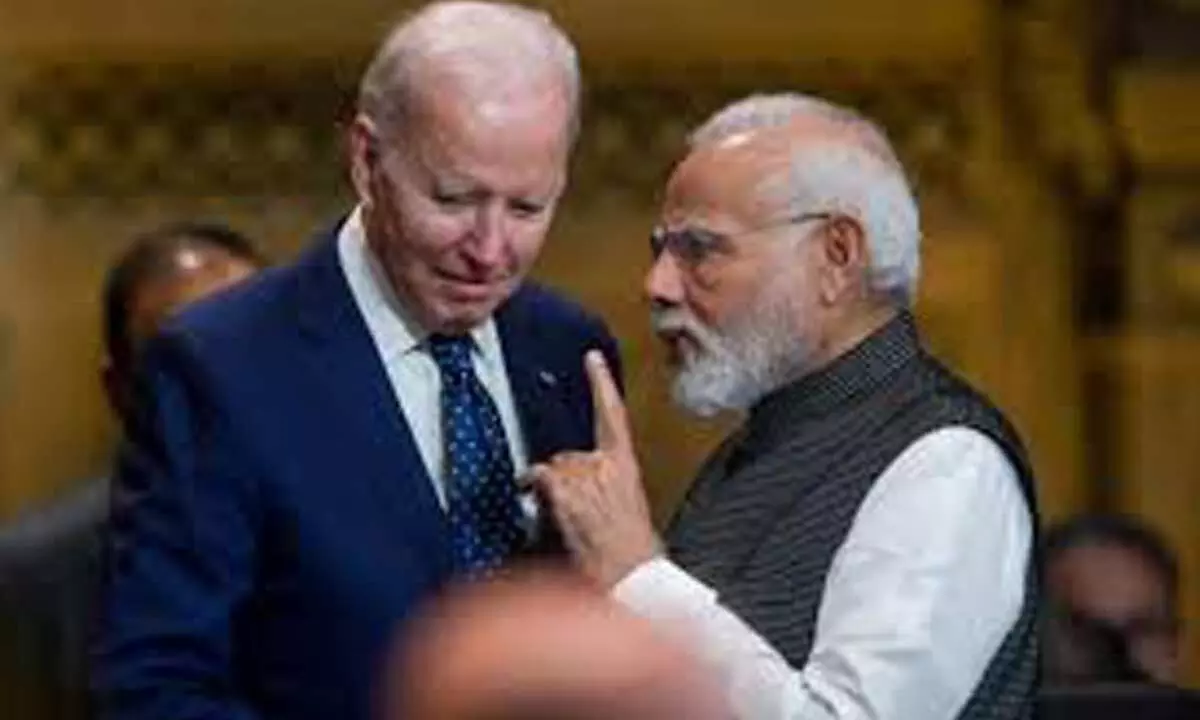Biden invites Modi for a state visit to the US in June
The partnership between the two nations is good for the world at large, says India’s top diplomat
image for illustrative purpose

The US, India and several other world powers have been talking about the need to ensure a free, open and thriving Indo-Pacific in the backdrop of China's rising military manoeuvring in the resource-rich region
Washington: Prime Minister Narendra Modi’s visit to the US next month is “historic” and will underscore that the partnership between the two nations is people-centric, people-driven, and is good for the world at large, India’s top diplomat here has said.
President Biden will host Prime Minister Modi for an Official State Visit to the United States, which will include a state dinner, on June 22, the White House announced on Wednesday. “The upcoming visit will affirm the deep and close partnership between the US and India and the warm bonds of family and friendship that link Americans and Indians together,” White House Press Secretary Karine Jean-Pierre said in a statement while announcing the visit. India’s Ambassador to the US Taranjit Singh Sandhu told that Modi’s forthcoming official state visit to the US, at the invitation of President Biden, is "historic". “Prime Minister and President Biden have together imparted significantly new vigour and momentum to our bilateral ties. The visit will be an opportunity for the two leaders to spend time together, take stock of the progress achieved and provide guidance on the future limitless possibilities," he said.
“The visit will also underscore that India-US partnership is people-centric and people-driven, and that it is not just for the two countries, but for the world at large,” Sandhu said.
White House Press Secretary Jean-Pierre said on Wednesday the visit will strengthen the two countries' shared commitment to a free, open, prosperous, and secure Indo-Pacific and shared resolve to elevate the strategic technology partnership, including in defence, clean energy, and space. The US, India and several other world powers have been talking about the need to ensure a free, open and thriving Indo-Pacific in the backdrop of China's rising military manoeuvring in the resource-rich region. China claims nearly all of the disputed South China Sea, though Taiwan, the Philippines, Brunei, Malaysia and Vietnam all claim parts of it.
Beijing has built artificial islands and military installations in the South China Sea. China also has territorial disputes with Japan in the East China Sea. China and its diplomats have been attacking the Indo-Pacific concept from the beginning claiming that it is aimed at containing Beijing.

